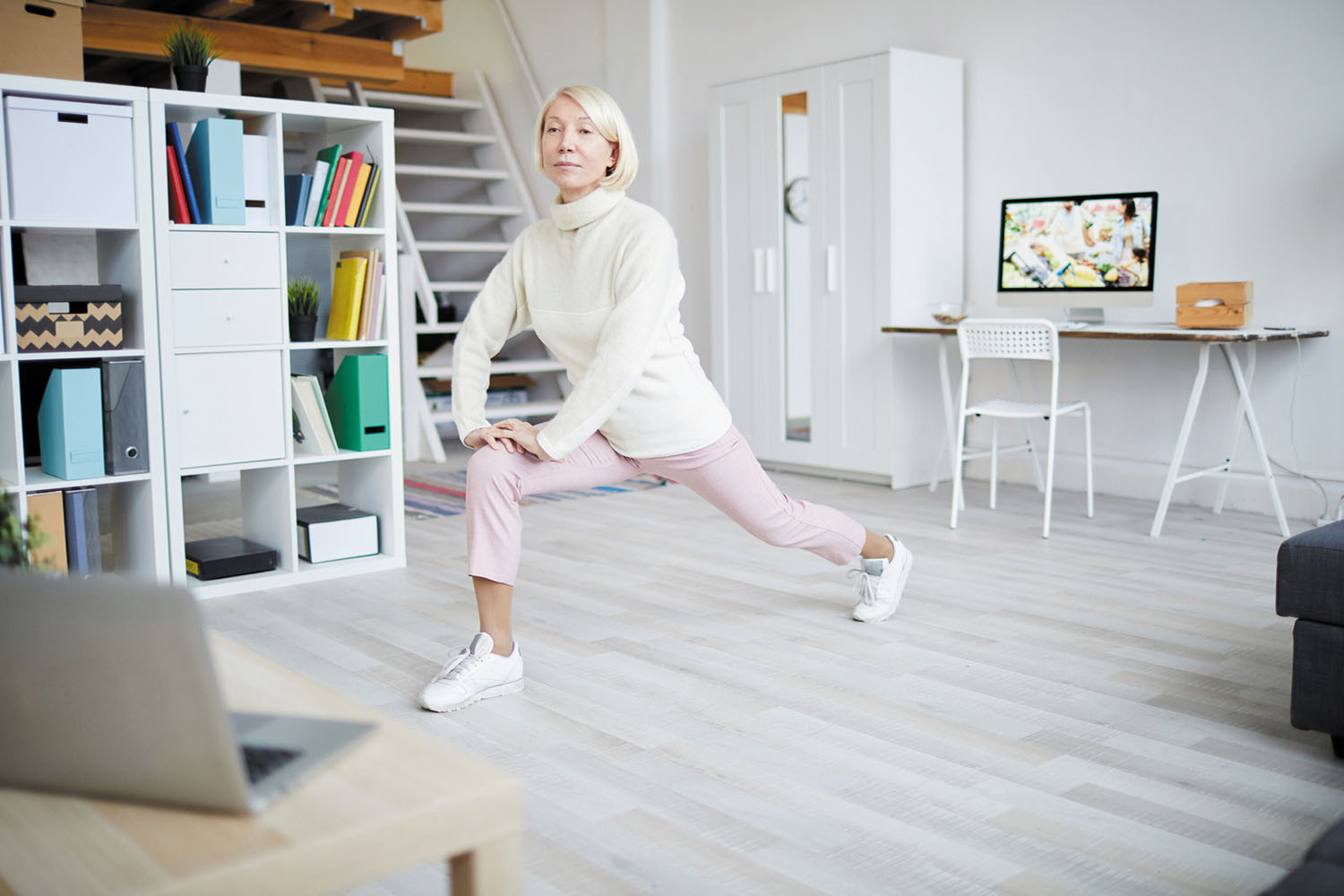
Can white noise really help you sleep better?

Celiac disease: Exploring four myths

What is prostatitis and how is it treated?

What is Cushing syndrome?

Exercises to relieve joint pain

Think your child has ADHD? What your pediatrician can do

Foam roller: Could you benefit from this massage tool?

Stepping up activity if winter slowed you down

Common causes of cloudy urine

Dragon fruit: How to enjoy this antioxidant-rich fruit
Exercise & Fitness Archive
Articles
Looking for a mellow form of exercise? Try tai chi
Tai chi is a slow, flowing form of exercise that's sometimes described as "meditation in motion." It can be a good gateway exercise for people who cannot or will not engage in more conventional types of exercise. Tai chi may help lower cholesterol levels, reduce blood pressure, and dampen inflammation, all of which are linked to better heart health. Tai chi may also be a promising addition to cardiac rehabilitation.
Checking for an abdominal aortic aneurysm: Who, when, and why?
Guidelines recommend that men ages 65 to 75 who have ever smoked cigarettes be screened for an abdominal aortic aneurysm (AAA). But other people at high risk might also consider this one-time test. These include older men and women with a family history of AAA and those with chronic obstructive pulmonary disease or atherosclerotic heart disease. The screening test is simple and painless, and it costs roughly $50, which is fully covered by Medicare for men who meet the guideline criteria, as well as for people ages 65 to 75 with a family history of AAA.
Don't take back pain sitting down
Pain when sitting can be caused by a number of common problems, including problems with the discs that cushion the vertebrae in the back. Lying down can help the pain temporarily, but the goal should be to get up and move as soon as possible. People should see a doctor if your pain is extremely severe, if it comes back after getting better, or if it occurred after an injury.
Why you should move — even just a little — throughout the day
People who sit for long, uninterrupted periods of time may increase their risk of cardiovascular disease, even if they get the recommended 30 minutes of daily exercise. Sedentary behavior appears to make people more prone to developing insulin resistance and inflammation, which are key players in the buildup of fatty plaque inside arteries. Experts say people should add short bursts of movement to their daily routine to break up long periods of sitting.
Step up your walking game
Most people typically get around 3,000 to 4,000 steps per day doing things such as household chores, going to the mailbox, or grocery shopping. But people who walk 8,000 steps per day (about 4 miles in total) may live longer than those who walk just 4,000 steps per day—and walking speed doesn't seem to matter. People who walk 12,000 steps per day may live even longer than those who take 8,000 steps. But the added benefit was small, and walking even more may not make a difference.
Orienteering: Great exercise and better thinking skills?
The navigation sport orienteering combines map and compass reading with exercise. It's a fun way to get outside and get some exercise — and it may even help fight cognitive decline.
Move of the month: Stationary lunge
Lunges, which strengthen the entire lower body, are a good example of a functional exercise. These exercises mimic everyday actions (such as picking something up off the floor), thereby improving physical functioning throughout the day.
Try this: Take a step back
Performing reverse lunges helps develop key hip muscles for better stability and teaches how to better control backward movement and coordination.
Exercise may improve atrial fibrillation
A 2023 study found that for people with atrial fibrillation, a program of supervised and home-based exercise may reduce the severity and frequency of their symptoms.
Exercises to try in the pool right now
Exercising in a pool provides an effective workout that is easy on the joints. Exercises can be made easier if they're done in slightly deeper water, where there's more buoyancy and support. They can be made harder by moving faster and holding fingers together like paddles. When starting a water workout, experts advise taking it easy at first. People should start with easier exercises and shorter durations, or do less than they feel up to. If they're not sore the next day, they'll know they did the right amount of exercise. From there, they can gradually increase the intensity.

Can white noise really help you sleep better?

Celiac disease: Exploring four myths

What is prostatitis and how is it treated?

What is Cushing syndrome?

Exercises to relieve joint pain

Think your child has ADHD? What your pediatrician can do

Foam roller: Could you benefit from this massage tool?

Stepping up activity if winter slowed you down

Common causes of cloudy urine

Dragon fruit: How to enjoy this antioxidant-rich fruit
Free Healthbeat Signup
Get the latest in health news delivered to your inbox!
Sign Up











